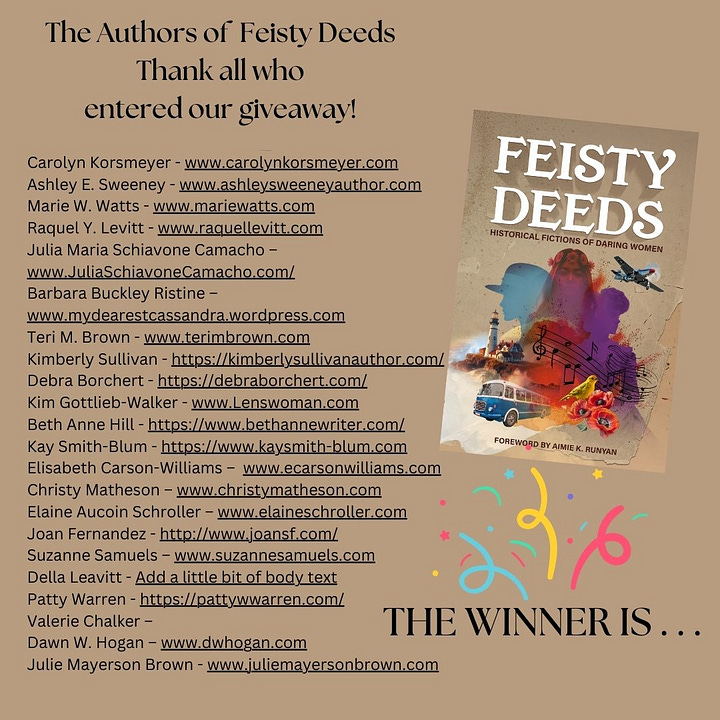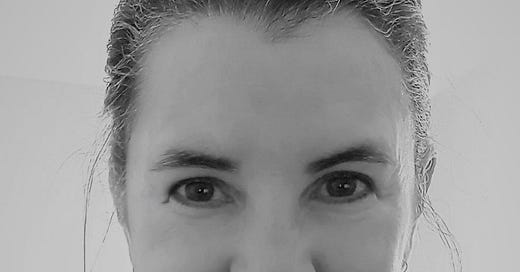Raquel Levitt received her Master’s in English and then taught American Literature and Freshman Composition at the university level. After a few years, she decided to follow her love of writing and pursued an MFA in Creative Writing via The Newport MFA at Salve Regina University. Raquel has completed a novel-length manuscript entitled, The Seer, about a young psychic in late 1890s Missouri who uses her gift to help abused women. She has written various other award-winning short stories published in literary magazines and anthologies. She’s currently working on her second novel. Besides writing, Raquel is an avid reader, book hoarder, world traveler, amateur nature photographer, and collector of cool rocks.
Raquel’s short story, ‘The Divinest Sense,’ was born from her love of the distant past. Her theme of women finding their own voice follows two twins, who each take a separate path, but who each decide their own happiness. Her story takes place in upstate New York in 1911 and introduces us to Alina and her twin sister, Lauren. After one sister is sent to an asylum for speaking her mind in this age where women were silent and docile, the other struggles to understand. The story uses lines from several poems by Emily Dickinson to explain the situation in elegant language. It shows how each sister decided her future and finds their happiness in different ways, but each makes that decision for herself. You can find out more information on Raquel and her writing at: (https://www.raquellevitt.com/)
Raquel’s Interview: ‘The Divinest Sense’
1. How did this story come to you and how did you get the idea for your Feisty Female Character?
My concept of the story, “The Divinest Sense,” was inspired by Ralph Waldo Emerson’s “The Divinity School Address,” where he encouraged a radical religious concept for the time (1838): that God can be found, not just within the four walls of a church, but within everything in nature and inside each one of us. My title is from Emily Dickinson’s poem “Much Madness is Divinest Sense,” and I based Alina’s character on the poet’s bold views that tended to go against the grain. A particular line in Dickinson’s poem struck me as the root of my story’s conflict: “demur—you’re straightway dangerous/ And handled with a chain.”
2. What’s your writing process/routine?
I do my best writing in the middle of the day. I begin around noon and write until 4pm, usually 4-5 times a week. Some days are more productive than others, of course. I try not to get frustrated on the days where I end up with maybe a paragraph or two after all that time.
3. What was the hardest part of writing this story?
The most difficult part was trying to make sure I didn’t offend anyone who might misconstrue the point of the story. The point for me, was that Lauren learned true freedom is a mental state, not a physical one, and that you can be imprisoned by feeling obligated to conform to society’s expectations.
4. How do you select your character’s names?
My main character’s names usually come to me unbidden and thankfully always feel right. My secondary characters are the ones that might take me a minute. For this story, the name Alina came to me for the “misunderstood” twin, and when I researched it, I saw that it means “light,” “truth,” and “noble.” I HAD to go with that!! Lauren immediately came as the POV twin, and I thought the two sounded beautiful together.
5. Describe your writing space.
My writing room pays homage to Herman Melville. Moby Dick has special meaning to me and I decorated the room with a nautical/whale theme. I love that room and it’s where I do my best writing. As far as my immediate desk space, I collect and polish rocks as a hobby, so I have several stones and crystals I can look at or touch if I need inspiration or balance.
6. Do you only write only Historical Fiction or do you write other genres?
I write other genres as well. The novel I am currently querying is set in the late 1890s, but has a paranormal element, and my second one has a dual timeline with a time-slip twist.
7. What question do you wish someone would ask you about yourself and/or your story and no one has?
I would love for someone to ask, “Would you be interested in representation? I’m a literary agent who loves your story.” Lol.
I’d love to hear your thoughts on Raquel’s interview and her story, especially if you’ve read Feisty Deeds: Historical Fictions of Daring Women. We would love a review on Amazon or Goodreads if you’ve read the book. It’s for sale on Amazon, BookBub, Kobo, and Barnes&Nobles.








Great interview, as always. I loved Raquel's short story!
Love the story Raquel. How sad for Alina, and others like herself, that were hidden away because of misunderstood gifts and talents. I shake my head at how, after centuries, we are still controlled through fear and ego. I agree, God is everywhere, in every thing, not just contained within four walls. Well said. Congratulations! Praying you find representation!